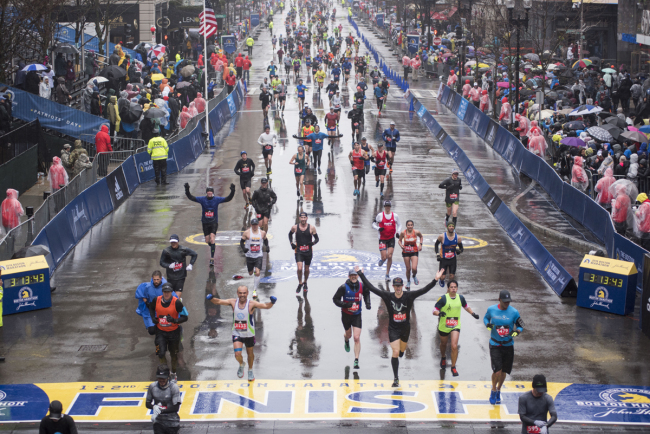Cheating trio trigger renewed shame
 0 Comment(s)
0 Comment(s) Print
Print E-mail China Daily, April 22, 2019
E-mail China Daily, April 22, 2019

Cheating by three Chinese runners at the recent Boston Marathon has cast a shadow over the running boom here and prompted experts to call for tighter industry regulations.
After being exposed by online whistleblowers, two of the runners, Wu Zhaofeng and Zhao Baoying, were found to have submitted fake qualification results to earn spots in the prestigious road race, which took place in the eastern US city on Monday.
The other runner, Zhang Jianhua, was discovered to have illegally traded his bib number.
After conducting an investigation, the Chinese Athletic Association (CAA) has issued the trio with lifetime bans from all distance-running events in China.
"The violation of race rules has tarnished the image of Chinese running enthusiasts globally and has caused serious damage to the sport's rising status in China," the CAA said in a statement released on Thursday.
"We will continue to crack down on all kinds of cheats in marathon in order to build a healthy and clean environment for road running in China."
According to the Boston Marathon Association's official website, a total of 951 runners from China qualified for Monday's race, with 844 of them completing the 42-kilo-meter course.
As one of the world's six major marathons, the Boston race requires applicants to meet challenging time standards, known as BQ (Boston Qualify) times in China, in order to earn one of the 30,000 available spots.
The cheating by the three Chinese runners initially came to light after they were questioned on social media as to why their Boston times were at least two hours slower than their BQ results.
"With marathons now so popular in China, participating and finishing certain renowned international races, such as Boston, has become something worth bragging about on social media," said Kang Xu, editor of Chinese magazine Front Runner.
"That's part of the incentive for some runners to cheat. For some highly popular races, trading bib numbers can be lucrative as registrants can sell their entries to those who have failed to qualify but are eager to run."
Aided by huge governmental investment in the sports industry, China has witnessed a marathon boom in recent years with over 1,500 road-running and cross-country races held last year in the country, up from only 22 in 2011.
But the explosion in races is yet to result in more mature attitudes toward participation, said Zhang Qing, founder of sports consultancy Key-Solution.
"Marathon as an urban sporting lifestyle remains in its infancy in China. It takes time to build the culture among participants that they should respect the sport, treat it seriously and with integrity," said Zhang.
"Organizers need to also learn how to operate an event properly. Stronger management and scrutiny on registrants' qualification and identities should be adopted, while tougher punishments should be imposed."
At a half-marathon in Shenzhen, Guangdong province in November, around 250 runners were caught cheating by taking shortcuts through bushes along the course.
And in December 2016, a runner who suffered a fatal heart attack during the Xiamen Half-Marathon was later discovered to be competing under someone else's name and number. The ruse had serious consequences because the on-site first aid the stricken runner received was based on the original registrant's ID and health information.






Go to Forum >>0 Comment(s)